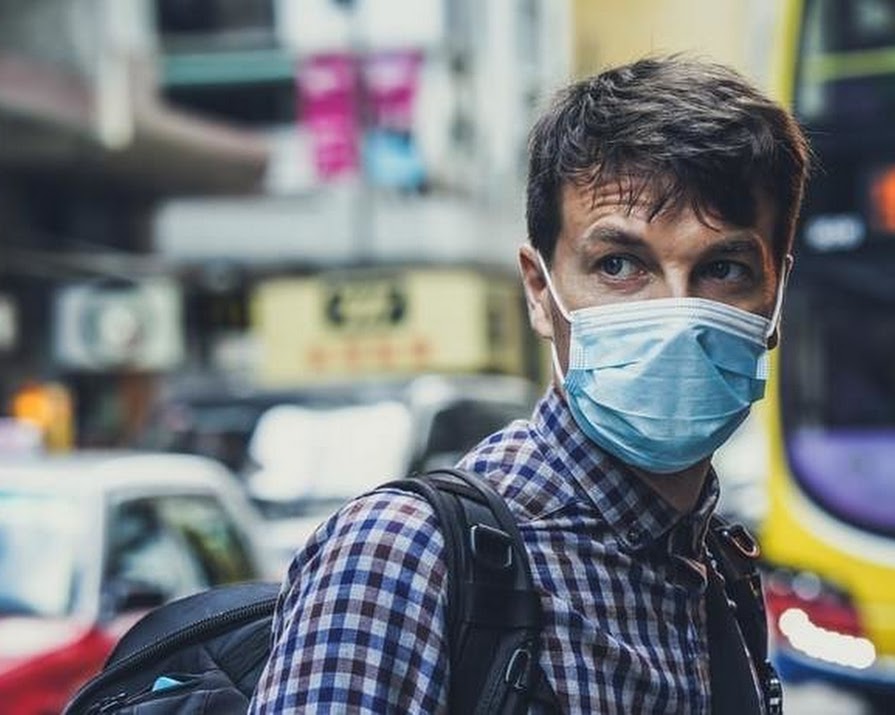
Coronavirus: We asked an Irish immunologist about the best and worst case scenario
By Erin Lindsay
05th Mar 2020
05th Mar 2020
With six cases of coronavirus now confirmed in the Republic of Ireland, we asked immunologist and Professor of Biochemistry at Trinity College Luke O’Neill to weigh in on screenings, long-term effects, and what to do if you’re immunocompromised.
With the news breaking this morning that four new cases of COVID-19 have presented in the west of the country, the public are on high alert for further information and news about the coronavirus.
This lunchtime, the Irish Times has confirmed that one of the people who has the virus in the west is a healthcare professional, and worked a shift in a hospital emergency department since returning from northern Italy.
The news means that many of us are concerned about the future of the virus in Ireland. How will it develop? What are the best and worst case scenarios for the virus? And how should people who are elderly or immunocompromised be preparing to deal with COVID-19?
With the burning questions in mind, we sat down with immunologist and Professor of Biochemistry at Trinity College Luke O’Neill to chat about what we need to know about the coronavirus.
What is the best and worst case scenario for the spread of COVID-19 in Ireland?
Now that the virus has arrived in Ireland, more cases being confirmed is inevitable. According to Prof O’Neill, “the worst, most extreme case scenario would see 70% of people worldwide becoming infected,” but this is unlikely.
In Ireland, the virus has yet to spread, with efforts concentrated towards containment. Prof O’Neill says that the ideal scenario would be that these efforts will be effective, and will cease the spread of the virus. This is why the HSE are closely monitoring and tracking those who may have come into contact with those who are infected, to stop the spread of further infection.
As he says, “it’s important to remember that 80% of those who are infected with the virus will have a mild dose and be fine. Around 15% will have a more serious case and may have to be hospitalised, and then unfortunately about 2-3% may die from the virus.”
Prof. O’Neill states that death rates from coronavirus worldwide are declining, which is a good sign.
Why hasn’t the government issued travel restrictions or airport screenings for the virus?
Many members of the public and even health professionals have criticised the HSE and the Irish government for not implementing further measures to stop the spread of infection. Why haven’t travel restrictions from affected areas and airport screenings been issued?
“The problem with this virus is that it is a moving target,” says Prof O’Neill. “Things are changing all the time, and governments around the world are depending on world experts for proper advice.
“The expert opinion right now is not to issue travel restrictions and that could be for a number of reasons — people can still get into Ireland in other ways for one, but overall, travel restrictions in cases like these don’t tend to work. People travelling may be doing so before they have any symptoms, and only present with symptoms when they are already in the country.
“It takes a lot of staff and logistics to facilitate screenings, and the evidence is also that they don’t tend to work. Those people could be put to better use elsewhere in containing the virus.
“These policies may change — if infection levels rise, then the experts will have to rethink their approach. But right now, the main focus is containment – if you are feeling the symptoms, don’t travel.”
What about those who are immunocompromised or the elderly — how should they be preparing for the virus?
Much of the rhetoric around coronavirus has focused on young, healthy, able-bodied people, who, the experts say, are not likely to suffer from a severe case of the virus. But how should those who are immunocompromised or elderly be preparing?
According to Prof O’Neill, this is a key issue going forward. “As 80% of those who get the virus will get a mild dose, we need to turn our attentions to those who are more at risk of severe infection.”
Those who have pre-existing conditions that affect their immune system, like heart disease or cancer; those who have lung issues like asthma; and those who are on medication that suppresses their immune system, are all at risk of a more severe infection.
Prof O’Neill doesn’t advise “anything too draconian” — keep an eye on those who are at risk and be vigilant. “The elderly and compromised should probably avoid large crowded areas where they could catch something, and definitely do not travel to affected areas. Be a bit more cautious, but don’t panic.”
What is the most likely path for the coronavirus this year? Will we still be dealing with it next winter?
While panic about COVID-19 seems to be at its peak, people are wondering how long this will go on. Will we have to deal with coronavirus next year, and beyond?
“As the temperature goes up coming into the summer, the hope is that the virus will begin to die, because, as with common colds and flu, it doesn’t like warm weather,” Prof O’Neill says.
“There is a fear, then, that there will be a rebound next winter; that the virus will have been latent and wake up again when conditions get colder.”
If there is a rebound, what will then happen to the virus? “If efforts to contain the virus don’t work — and there is a risk of this, because it’s so infectious — COVID-19 will likely go into the population like any other virus,” says Prof O’Neill. “During any given winter, the public will have to deal with the symptoms of it, just like colds and flu, and it will be handled accordingly, like any other virus.”
Prof O’Neill advises the public that experts are doing everything they can to work against coronavirus. “Every day, doctors are getting more information and developing better treatments. Drugs to treat the symptoms of the virus will soon be available, and we are always getting into a better position to treat it.”
Read more: ‘My bones are aching’: coronavirus patient opens up about his symptoms
Read more: ‘The flu is worse than the Coronavirus’ – debunking the biggest Coronavirus myths
Read more: How to talk to your children about Coronavirus























